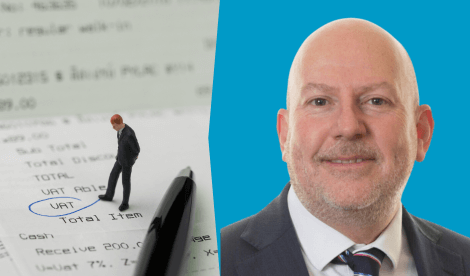Rupert Moyle BA (Hons)
- Partner and Head of VAT and Duty
- +44 (0)330 124 1399
- Email Rupert
Suggested:Result oneResult 2Result 3
Sorry, there are no results for this search.
Sorry, there are no results for this search.
View all peoplePublished by Rupert Moyle on 23 October 2020
Share this article
At present, it may well be your responsibility to deliver your goods to your customers in the EU, or you (or your agent) may ship your stock into an EU facility before orders are taken. Have you thought about how it will work form 1 January 2021 when there will be export and import declarations to be made – that is customs to clear – whether a Free Trade Agreement is reached with the EU or not?
You need to be very clear as to who will be responsible for the import and to agree those terms with customers.
This is not just about who needs to pay the VAT and any additional Duty cost on import into the EU, or if there is a need for an EU as well as UK EORI to clear the goods between the UK and EU, or an obligation to register for VAT in the country of import if you are the importer. If your customer dictates that you or your agent will be responsible for the import, there is a significant issue that may arise, potentially leading to the need to set up an EU establishment.
To explain, in order to clear goods through Customs there must be a “declarant” to complete a declaration. This is the person/entity responsible for the import (so for an import the declarant would be the importer or “importer of record”).
EU law (the Union Customs Code – “UCC”) says that the declarant must be established in the EU, certainly where there is any regularity of imports (there are one or two exceptions such as for temporary admissions).
Establishment means a registered office, or HQ, or permanent business establishment with human and technical resources.
Therefore, if an entity is not established in the EU it cannot technically be the declarant. In such cases it may want to appoint a Customs Representative to handle the import declaration. However, the UCC says that, whilst anyone can appoint a Customs Rep, where the importer is not established in the UK the Rep must act for the importer, i.e. the Rep would act in its own name, declaring the imports in its name and so it would be the declarant/importer of record. This would mean that it becomes jointly liable for the Customs debts.
Whilst a Rep may be happy to act in its own name where the importer/owner of the goods is established in the EU, because HMRC or other tax authority can pursue the importer more easily for any debts, it may well not be happy to do so if the importer is based outside the EU, because then the authorities would presumably pursue the Rep first as it is based in the EU and easier pickings. Any Rep that is prepared to be jointly liable for the Customs debt is likely to look to charge a premium for this service. Therefore, it may be that the declaration has to be made in your name, meaning that you will need to be established in the EU.
On the declaration, there will be three key entities named; The exporter, the importer and the consignee.
The exporter is fairly obvious. The importer will be the one that is responsible for the import as mentioned above. In a standard import the consignee will depend on whether the exporter or importer is responsible for paying duties and taxes, determined by the Incoterms (terms of delivery, detailing who is responsible for what). The consignee is the one that takes ownership for (or still owns) the goods once they are in free circulation (have cleared Customs).
So, any entity taking its own goods into an EU country will be the importer/consignee. And to be clear, a consignee is responsible for paying the Duty and VAT on import. A consignee must have an EORI number, whether UK EORI for exporting and importing, and/or an EU EORI for clearing goods into and out of the EU.
If a customer takes title to the goods on import, then it will be the consignee stated on the import declaration and will be responsible for paying any Duty and VAT. This then is a (the best) solution for UK businesses supplying goods to EU customers. But then the customer may have a Duty cost to bear, leading to a price discussion!
For direct to customer – B2C – sales into the EU the consignee could be named and so he/she is responsible for the Duty and VAT, with the supplier paying those on behalf of the customer.
For further information and guidance on the above, or for help with any VAT and Duty queries, please contact me here.
Share this article
This site is protected by reCAPTCHA and the Google Privacy Policy and Terms of Service apply.
Our complimentary newsletters and event invitations are designed to provide you with regular updates, insight and guidance.
You can unsubscribe from our email communications at any time by emailing [email protected] or by clicking the 'unsubscribe' link found on all our email newsletters and event invitations.
This site is protected by reCAPTCHA and the Google Privacy Policy and Terms of Service apply.




